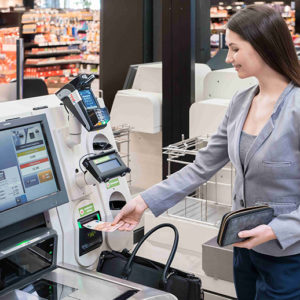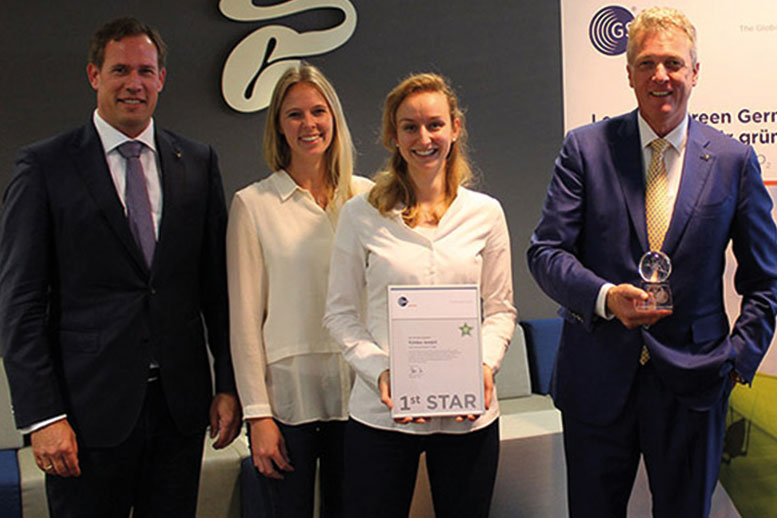Tchibo and Otto are testing reusable shipping packages

Latest news

-ADVERTISEMENT- The wellness and fitness trend has arrived in the …

The fight against environmental destruction and the climate crisis are …

Anyone looking for new products in the field of toys, …

It is a market with huge dimensions and great potential. …

For companies, a social media presence has become indispensable and …

Hardly anything disturbs customers as much as waiting at the …

Research by TV station RBB has shown that some outlet …

The industry association Licensing International (formerly LIMA) has honored outstanding …

Communications manager Hannah König and managing director Stephan Schenk are …

The toy dealer wants to leave his insolvency behind him. …
Tchibo and Otto are part of the PraxPack pilot project and are testing the sustainable shipping system. PraxPack wants to introduce reusable shipping packages by the beginning of 2020. The aim is to save resources and reduce waste and CO2 emissions.
The project is funded by the Federal Ministry of Education and Research. The campaign is led by the Hamburg Institute for Ecology and Politics.
Pilot project PraxPack
The project aims to enable a reusable mail order system in order to achieve a substantial reduction in the packaging-related consumption of resources and associated waste volumes in the medium term. Repack supplies the reusable bags for this purpose. The company was founded in Finland in 201 and sells polypropylene bags in three sizes: S (0-6 litres), M (6-21 litres), L (20-45 litres). Repack has a customer base of Scandinavian shops and young companies from Great Britain and Belgium.
According to Tchibo, the sustainable shipping system is particularly suitable for textiles. The customer receives the goods in a Repack bag. After the goods have been removed, the customer folds the bag and returns it to the return address. The empty packaging is to be sent to a central service provider and the returns directly to Tchibo.
Tchibo’s sustainability strategy
“As part of our sustainability strategy, we focus, among other things, on saving resources. Of course, this also includes the reduction of packaging material. This is why we are also looking for sensible reusable solutions in the logistics sector. This is why we are participating in the PraxPack project co-financed by the German Federal Ministry of Education and Research (BMBF). Within the framework of this project, the use of reusable packaging is to be tested. The results will be made available to the industry,” said Tchibo.
Packaging waste in private households
In Germany, over 750,000 tons of packaging made of paper, cardboard or board (PPK packaging) and over 50,000 tons of plastic packaging are produced each year by the end consumer. Accordingly, more than a quarter of the PPK packaging waste in private households can be traced back to mail order. According to Tchibo, further growth of around 20 percent is expected in the mail order sector by 2020.
Participants in the PraxPack pilot project
The pilot project started on 1 June 2019 and will run for 32 months. The visible start is in Q1 2020. Other participants, besides Tchibo and Otto, are Avocadostore, Deutsche Post DHL, the packaging manufacturer Cargo Plast and the Gesellschaft für Verpackungsforschung on the PraxPack project.
Mimi Sewalski, managing director and co-founder of Avocadostore explains: “It is time for a disruption in the mail order business. With our sustainable product range, we are already showing that there are alternatives - but we want more. We want to show the whole industry that it is high time for change and that it is possible. That is why we are particularly pleased that the big players in the industry are also involved in the project.”
Tchibo reduces CO2 emissions
In addition to the pilot project, the Tchibo company also attaches great importance to sustainability. With the LOTOS (Logistics Towards Sustainability) program, Tchibo is bundling all its measures into “sustainable logistics”. The program was launched in 2006 to record the transport-related CO₂ footprint from the point of shipment via the warehouse locations to the supermarket, the branch and the end customer in order to draw up an annual balance sheet. The most important factor here is transport when it comes to reducing emissions. Tchibo has set itself the target of reducing CO₂ emissions by 40 percent per tonne-kilometre in the transport of goods by 2020.
Tchibo receives Lean and Green 1st Star
Within three years, the company managed to reduce its CO₂ emissions by 23 percent. GS1 Germany honoured Tchibo’s commitment with the Lean and Green 1st Star for the result. The initiative certifies an ecological sense of responsibility with concrete reference to warehouse and logistics processes. The goal is to reduce CO₂ output by 20 percent in five years.

“We congratulate Tchibo on this commitment and its successful implementation. The special feature is the radius over which the measures extend, because Tchibo looks at its global logistics here,” explains Oliver Püthe, Senior Sector Manager Logistics Service Provider at GS1 Germany. Whether green coffee from South America and Africa or non-food goods from Asia: the CO₂ balance extends from shipping and warehousing to distribution in Germany and Europe. In addition to optimising transport and warehouse processes, packaging is also reduced in logistics. In addition, Tchibo strives to promote exchange in initiatives such as Lean and Green. The aim is to further develop reporting standards and to jointly develop and implement possibilities for reducing the number of packaging handled by CO₂
“Sustainability has been a focus at Tchibo since 2006. We are delighted to be awarded the Lean and Green 1st Star for our ongoing commitment. We see this as additional motivation to commit ourselves even more to sustainable processes,” confirms Alexander Ralfs, Director Supply Chain Management & Logistics at Tchibo.
You might be also interested in:
Tchibo is the world’s third largest purchaser of organic cotton
#Time4Green: Tchibo launches six-week campaign
Link: Tchibo and Otto test sustainable shipping system
Image: iStock
//JP




Leave a Reply